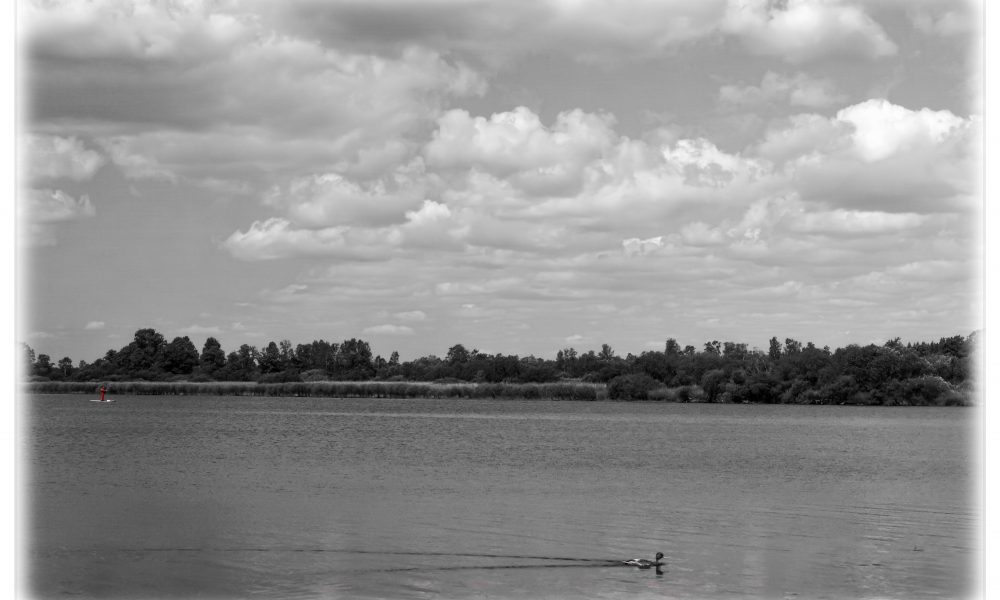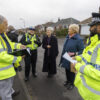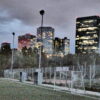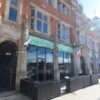Coronavirus News
Coronavirus Nursing home told families hospital wouldn’t accept sick residents during pandemic. That wasn’t true
The long-term care home where more people have died during the coronavirus pandemic than anywhere else in Ontario is facing new scrutiny.Raquel John-Matuzewiski was told by staff at Orchard Villa Retirement Community in Pickering, east of Toronto, that a nearby hospital was not accepting patients from long-term care, but she insisted her father be taken…

Coronavirus
The long-term care home where more people have died during the coronavirus pandemic than anywhere else in Ontario is facing new scrutiny.
The long-term care home where more people have died during the coronavirus pandemic than anywhere else in Ontario is facing new scrutiny.
Families who asked that their loved ones be transferred to hospital from Orchard Villa Retirement Community in Pickering, east of Toronto, say they were told hospitals were closed to residents of long-term care homes and that COVID-positive residents would need to remain — and possibly die — in the home.
But an investigation by CBC’s Marketplace and The National reveals that was never the case.
More than a month into the long-term care lockdown across Ontario, Cathy Parkes learned COVID-19 had reached her father’s long-term care home.
In a call with Paul Parkes soon after the outbreak was announced, his voice was weak, making her think he was already in the grips of the virus.
“My brother managed to reach him briefly on Easter Sunday and he said he couldn’t speak at all,” said Parkes.

She said she spent the day trying to reach someone at the home, finally getting hold of a nurse at 9:15 p.m. He told her he couldn’t swab her father until he had a fever. But overnight, her father’s temperature began to rise.
The next day, Parkes went to Orchard Villa and stood outside her father’s window, looking in. She could see that her dad was in bad shape. She asked that the 86-year-old be moved to hospital.
Coronavirus ‘He was not OK’
“I knew as soon as I saw him that he was not OK,” she said. “I kept saying, Dad, turn your head and look at me. He couldn’t do it.”
She got hold of the nursing staff by the evening and asked that he be moved to hospital.
But the charting report from that night confirms that the staff member advised against it. Parkes said staff assured her that her dad was doing better and had eaten most of his lunch that day.
“I thought that’s not possible,” said Parkes. “I was there at 12:05 at lunchtime and he was comatose.”
CBC’s The National and Marketplace examined the outbreak at Orchard Villa through a whistleblower’s account on the front lines and extensive interviews with family members of residents. They found that families were given false information and led to believe that the home had a handle of the situation when it didn’t.
Exclusive hidden camera footage shows that even two years ago, the home was underprepared for an emergency of this scale, and an analysis of five years of inspection reports paints a picture of a home with well-known problems that may have set the home up for failure.
Coronavirus ‘He was not being fed’
Parkes, whose father died of COVID-19 at the home on April 15, is not the only one who says she was discouraged from seeking hospital intervention on behalf of their loved one at Orchard Villa.
Raquel John-Matuzewiski said she was told the same thing.
WATCH | A daughter ignored the advice from a nursing home and believes she saved her dad’s life:
Raquel John-Matuzewiski was told if her COVID-19 positive father had worsening symptoms, he would go into palliative care at the home because the hospital was not accepting patients from care homes. CBC learns that wasn’t true. 2:33
Two days after the death of Parkes’s father, John-Matuzewiski’s father, Chester John, tested positive for COVID-19.
A week later, when John-Matuzewiski saw that her father, 79, wasn’t doing well, she also asked about having him transferred to hospital. She said she was told that if his symptoms worsened, her father would start palliative care in the home because the hospital was not accepting patients from long-term care.
But when a FaceTime call revealed a sharp decline for her father in just 24 hours, John-Matuzewiski said she called the nursing station and insisted he be transported to hospital immediately. The home obliged.
Coronavirus Malnourished and dehydrated
“I no longer felt that … my dad’s wellbeing and safety could be entrusted to them,” John-Matuzewiski said.
But when John-Matuzewiski arrived at hospital, she learned her father’s poor condition wasn’t just because of COVID-19. He was also suffering from malnourishment and dehydration.
“It told me, obviously, that he was not being fed or being nourished or hydrated the way they had told me he had been for weeks,” she said.
After John was put on an IV and a feeding tube, he recovered and is in stable condition at Lakeridge Health Ajax Pickering Hospital.

Lakeridge Health, the health authority that runs the hospital, told CBC in a statement that there was never any period of time that it was not accepting long-term care patients.
Citing “privacy reasons,” Orchard Villa’s executive director, Jason Gay, wouldn’t comment on why families were advised against sending loved ones to hospital.
“We cannot comment on individual resident matters for privacy reasons so unfortunately, we cannot respond to most of your inquiries,” Gay said in a statement. “Our team at Orchard Villa reached out to health partners and the government early and often and all assistance provided was welcomed.”
Coronavirus ‘They’re lying to you’
Parkes said the night she tried to send her father to the hospital, the nursing staff told her that everyone who had tried to go to hospital was rejected. Either the paramedics wouldn’t take them or they would arrive at the hospital and be sent back.
But she had contacted the hospital earlier and had been told they would take them.
Yet Parkes said the nursing staff still insisted the hospital was mistaken. “[They told me] ‘No, they won’t. They’re lying to you.’ “
Parkes decided to sleep on it and ask again the next day. But by then, it was too late. Her father had died.
“We weren’t given the chance for him to survive,” she said. “I think if my dad had been in the hospital, he might have had a chance.
“I think everything in this situation was done wrong — everything that could be done wrong was done wrong.”
WATCH | Orchard Villa told families a nearby hospital wouldn’t accept their parents during the pandemic:
Families at Ontario’s worst-hit nursing home say they feel the home misled them about COVID-19 care options. David Common investigates whether Orchard Villa staff discouraged families from sending their loved ones to the hospital and refused outside help when it was offered as the outbreak ramped up in the home. 8:42
Families of residents at Orchard Villa are left with many questions: Why were they discouraged from calling an ambulance? Why didn’t the home seek help earlier? Did management really think they had things under control?
If they did, they shouldn’t have, according to a care worker whom CBC has agreed not to name for fear he may lose his job.
“I would start my … evening shift from three to 11 and I’d find the breakfast and lunch trays sitting in front of the patients,” said the worker.
He said staff were only helping to feed patients who had required help feeding before the pandemic hit. The rest were fending for themselves.
Coronavirus Whistleblower haunted by what he saw
“The patients who were sick with COVID, they had no energy … the food would be sitting there right in front of them.”
He said it was “disheartening” to see because the residents were hungry, but they didn’t have the strength to pick up a fork and feed themselves.
“Imagine what it’s like … you put food in front [of them] and they can smell it, they can see it, but they can’t have it,” he said. “Not only were they hungry, it’s a carrot dangling in front of their face, you know?”
The worker is no longer working in the home, but the experience still haunts him.
“Now that it’s over and I’ve been out of it for a while, I’m actually having PTSD kind of symptoms,” he said.

The worker said he reached out to the Ontario Ministry of Health, and the prime minister’s office as well, urging them to talk to the front-line workers about what’s going on in these homes and how to fix it.
But according to Orchard Villa’s inspection reports from 2015 through 2019, the provincial government had already been alerted to the fact that the home was not prepared to deal with what reports call “community disasters.”
For every year that there is a retirement home inspection report posted on the Retirement Homes Regulatory Authority website, there is a violation noted for Orchard Villa’s emergency planning.
“A review of the emergency kit revealed that the only resources, supplies and equipment vital for emergency response set aside were three flashlights,” said an inspection report from 2015.
The next year, according to a report, the home still didn’t have a fulsome emergency plan, and there was “no evidence” of procedures for dealing with a community disaster or emergency evacuation.
A followup report later that year found no violations, but another emergency response plan violation was recorded in the next report in 2018. Inspections from 2017 and 2019 were either not conducted or their reports weren’t posted on the RHRA’s website.
Coronavirus No plan for community disaster in 2017
Marketplace visited Orchard Villa in 2017 when investigating abuse in long-term care homes. At the time, the home was in the top 20 homes in Ontario for the worst records of reported incidents of staff-to-resident abuse.
When the undercover journalist asked about the inspection reports posted on the wall, an administrator said it had recently been written up for not having a plan to deal with a community disaster.
“The licensee provided an emergency plan which did not contain community disasters,” she read with a laugh. “So we took corrective action to complete.
“Quite often they can usually find something,” she said.

When the journalist visited the long-term care side of the home, staff appeared to violate their own rules about infection control.
“We’re not allowed to give tours during an outbreak,” said the staff member. “I’ll give you a quick glance.”
The journalist wandered the halls for 30 minutes without being made aware there was an outbreak before she was offered a tour.
Other reports in the years leading up to the pandemic from both the retirement and long-term care regulatory authorities might have tipped off the provincial Ministry of Health and Long-Term Care that this home might struggle in a pandemic.
They reveal that staff weren’t trained in infection control, that there were multiple incidents of neglect and there was chronic understaffing, including 14 shifts within a span of five months where there were no registered nurses on duty.
Coronavirus Residents lying on bare mattresses
Despite these reported incidents, Ontario Premier Doug Ford said he was shocked by a report released a month after members of the Canadian Armed Forces were ordered into five Ontario long-term care homes, including Orchard Villa, to help facilities that were struggling.
The report confirmed that a hydration schedule was not being adhered to and that residents were lying on bare mattresses, left in soiled diapers in bed and being fed while lying in bed, which, according to the report, “appeared to have contributed” to the choking death of a resident.
“The people that were really sick were just dehydrated, I’m not convinced that COVID killed a lot of people,” said the health worker. “And the reason I know that is because once the military started feeding them and making sure they’re getting fluids, people were rebounding faster.”
The government has since assigned Lakeridge Health to take over management of the home and appointed other health authorities and hospitals to manage six others in Ontario.
Coronavirus ‘She was so dehydrated’
As shocked as the premier might be by the military report, many of the findings were predictable for family members with loved ones who lived at Orchard Villa.
Marie Tripp said she noticed issues right away when her mom, Mary Walsh, was admitted to Orchard Villa in April 2019. That’s why she was there every day to take care of her mom long before the COVID-19 lockdown locked her out.
“I continuously was asking for doctor’s appointments for mom, for followups…. Something as simple as getting her hair done wasn’t even done for two months,” she said. “I’d asked the same nurse over and over again all these questions [and she said] ‘I’ll get to it, I’ll get to it’ and it got to the point that nobody was getting to anything.”

Tripp said after her mom wasn’t given pain medication for three days following skin cancer surgery, she decided to install a camera in her room to monitor her care in the hours that she couldn’t be there with her.
With the camera on, Tripp developed serious questions over how the home was handling the COVID-19 situation. When she was watching the video feed, she noticed her mom’s breathing was shallow and laboured. She called the home and had her put on oxygen immediately. In another instance, she saw Walsh’s food and water left out of her reach. Tripp said calls to the home often went unanswered for hours.
Coronavirus ‘Just trying to get help’
Tripp and her daughters went to visit her mom at the window of the home and saw that she was malnourished.
“My mom was so dehydrated, she had the call button in her hand and she was trying to drink from the call bell,” she said.
“I knew she was dying and I knew they wouldn’t let me in till the last hours,” she said “The only thing we could do was bang on that window — I was afraid my girls were going to break it — just trying to get help for Mom.”
Walsh died on April 20 at the age of 89.
WATCH | A daughter talks about why she monitored her mother’s care through a camera:
Marie Tripp says she witnessed her COVID-19 positive mother desperate for water and in urgent need of oxygen before mother’s ultimate death in the home. 4:24
Ralf Leswal said he was also in the home every day for years before COVID because he didn’t trust that his wife, Karen Leswal, would be fed if he wasn’t.
Karen Leswal had been living at Orchard Villa for 15 years before she caught COVID-19. She had Huntington’s disease and needed a lot of care, which her husband felt he needed to bolster.
Leswal would visit the home every night to feed his wife dinner. He said it would take an hour to feed her and make sure she was hydrated.
“Nobody under normal conditions has that time to give to a resident.”
Leswal said the home “never had enough staffing,” a sentiment shared by inspectors who documented short-staffing issues in reports from 2016, 2017 and 2018.
Coronavirus ‘To the worker, it’s all about time’
He said the home wasn’t meeting the care needs of residents even before the pandemic.
“I cleaned my wife’s room personally because the standard of housekeeping was ridiculous,” said Leswal.
“To the worker, it’s all about time. If you spend 10 minutes on one resident, that means you’ve got to spend less on the next resident, right?” he said. “They’re not even paying attention sometimes to the resident they’re working with because they’re thinking, ‘Oh, I got to be here, I got to be here, I got to be here.’ ”

Leswal was shut out of the home for 43 days before he got a call on April 27 saying his wife was palliative and that he should come to say his goodbyes. She died on April 30 at the age of 69.
“I really don’t know whether she died from COVID or whether she died of a combination of being malnourished, mistreated,” he said. “I have no idea.
“I knew my wife would some day pass,” he said. “But … she didn’t die on her terms.”
Orchard Villa wouldn’t comment on the death for “privacy reasons.”
After eight weeks of intervention from Lakeridge Health, and seven weeks of help from the army, Orchard Villa is now COVID-free.
But with a 78-person death toll, families are left wondering how many might have been saved had the home been adequately prepared or sought intervention sooner.
For her part, John-Matuzewiski won’t be taking her father back to Orchard Villa after he’s discharged from hospital.
“I told them that the day he was admitted [to hospital],” she said. “The trust has been broken.”
If you have any tips, send to marketplace@cbc.ca

Subscribe to the newsletter news
We hate SPAM and promise to keep your email address safe



















